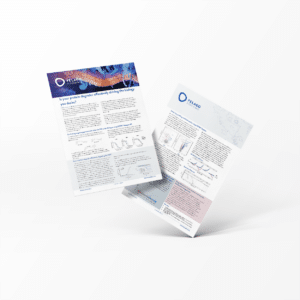Application Notes
Read our application notes that we prepared for you to better understand CETSA® technology, the science behind it and the case studies.
In the discovery and development of targeted protein degraders, as with any modality, assuring efficacy from the early stages of drug discovery is essential to prevent failure at later stages of clinical development. Correlating physiological relevant affinity (target engagement) with therapeutically relevant effect at each stage in the value chain increases the overall success rates in drug discovery and development.
CETSA® Explore offers unbiased proteome-wide thermal profiling that can provide key insights for phenotypic drug discovery in a disease-relevant, label-free system. The method allows the entire proteome to be simultaneously monitored for changes in protein thermostability during drug treatment.
Lack of efficacy due to poor target engagement is a major reason compounds fail during phase II clinical trials. High-throughput screening (HTS) is widely used in small molecule drug discovery to identify chemical starting points on novel therapeutic targets. The evaluation of hits and the subsequent development into lead molecules by use of structure-activity relationship (SAR) is a time and effort consuming task.
Assessing the selectivity of candidate drugs is crucial in order to reduce drug development attrition rates. Conventional screening methods using target panels are not sufficient to fully profile the selectivity since drug candidates commonly have multiple physiological targets far beyond the limited scope of these panels. CETSA® Explore has been developed to effectively assess both on- and off-target protein binding through unbiased proteome-wide profiling.
A drug’s efficacy depends on how well it binds to its intended target and the resulting change in protein function, the relationship between target engagement and the ability to initiate a response. Lack of efficacy due to insufficient target engagement is a major contributor as to why drugs do not reach phase III clinical trials.
Developing therapeutics against novel and difficult-to-drug targets is one of the key challenges of modern drug discovery and development1. One of the main challenges with unexplored novel protein targets is often the lack of tools, such as antibodies, for the investigation and design of compounds that interact with these protein targets.
It’s essential for a successful drug discovery campaign that your compound is therapeutic, it must selectively bind the right target in order to be both effective and safe. To achieve this, the drug must be present at the site of action and occupy the intended target with high specificity. Most drug candidates fail in the proof of concept stage due to inadequate efficacy, which often can be attributed to insufficient occupancy or the lack of target engagement.







